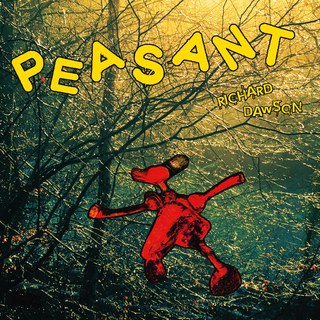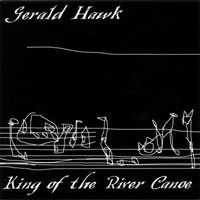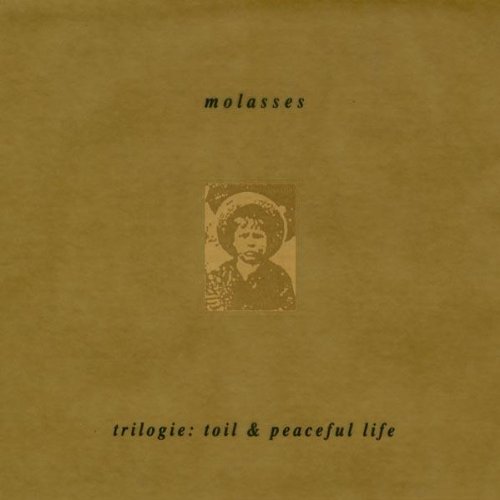Description
Who would have thought that one of the year’s most absorbing albums would have concerned the goings-on in the ancient Anglo-Saxon kingdom of Bryneich, performed by a geordie with a nylon-stringed guitar, a busted amp and a penchant for impenetrable avant-folk? Richard Dawson’s latest long-player doesn’t exactly scream “Best of 2017”, but there was something in Peasant’s detailed vignettes of dark ages beggars, weavers and prostitutes that felt unexpectedly resonant in 2017, a timely work from another time.
Dawson has previous on excavating the distant past to explain the present. The Newcastle singer-songwriter’s 2013 album The Glass Trunk was inspired by a search for clippings on the subject of death at the Tyne and Wear museum archive. He dug up some remarkable finds – none more than the poem that inspired live favourite Poor Old Horse, a blackly comic account of three tanners yard workers’ fruitless and exceedingly brutal attempts to put a nag out of its misery. At the same time though there was something slightly callous about the exercise, a feeling that its author was a little too in love with the notion of the past as a period of brutality and squalor.
Peasant by Richard Dawson
Certainly, Peasant has its own fair share of brutality and squalor – whooping cough, sex slavery, death by bog – but there’s also a sense of a world that’s lived-in and familiar. In an interview with the Guardian’s Laura Barton earlier this year Dawson expressed a growing “feeling that times are right next to each other”, and what Peasant does with such remarkable clarity is to convey the sense that its characters’ concerns, fears, hopes, failings and irrationalities are consistent with our own, even as their world of urine-soaked woad and rancid smithies remains utterly alien.
Perhaps not that alien, though: shot through Peasant’s tragic kingdom is a looming sense of society frayed by the severing of relations with a foreign force (in this instance the Roman empire), of paranoia and confusion and superstition trumping reason and logic. Sound familiar? Oh and while we’re at it, find me a more prescient lyric in the age of Weinstein than the cry in Masseuse of “I am tired of men / Of kneading the knots from their bulbous backs and necks.”
Sweet falsetto … Dawson began working with a voice coach last year.
Facebook Twitter Pinterest
Sweet falsetto … Dawson began working with a voice coach last year. Photograph: Sally Pilkington
This heightened sense of empathy is matched by a new level of accessibility to Dawson’s composition. He has a reputation for creating music that borders on the impenetrable, comparable to Derek Bailey’s or the more outre end of Scott Walker’s output. That’s a shade unfair – his songs have always boasted a skewed tunefulness, buried though it was beneath layers of dissonant feedback – but certainly Peasant is the first Dawson album that could be described as legitimately earwormy. His melodies still zag where you expect them to zig, but in a way that feels thrilling rather than deliberately difficult. The exuberant gang vocals of Ogre could almost be mistaken for Belle and Sebastian or Los Campesinos, if either of those bands ever sang about forming a search party to locate the body of a missing child, while the delicate folk of Beggar shows off Dawson’s surprisingly sweet falsetto.
Sign up for the Sleeve Notes email: music news, bold reviews and unexpected extras
Read more
Dawson began working with a voice coach last year (one of the first changes he was ordered to make was to stop knocking back several pints before performing live) and it’s notable how greatly improved his vocal performance is here. His was always a formidable baritone – capable of silencing the rowdiest of backroom bars – but here it feels deeper, richer and more versatile, a character as well defined as any he sings about on this record. Meanwhile, his gristly, Beefheart-inspired guitar lines have been firmed up by flourishes of brass, strings and harp, providing sunbursts of unexpected poignancy.
No moment is more poignant than on Peasant’s standout track, Soldier. It’s sung from the perspective of a military grunt preparing reluctantly for battle, who simply wants to go home to his partner and live a quiet life. “I am tired, I am afraid / my heart is full of dread”, he sings in the song’s chorus. It’s a genuinely heartbreaking moment, but it’s when Dawson suddenly replaces “dread” with “hope” in the final refrain that his deep dive into the past becomes affectingly real. For a moment, you’re right there with him.
(The Guardian)




